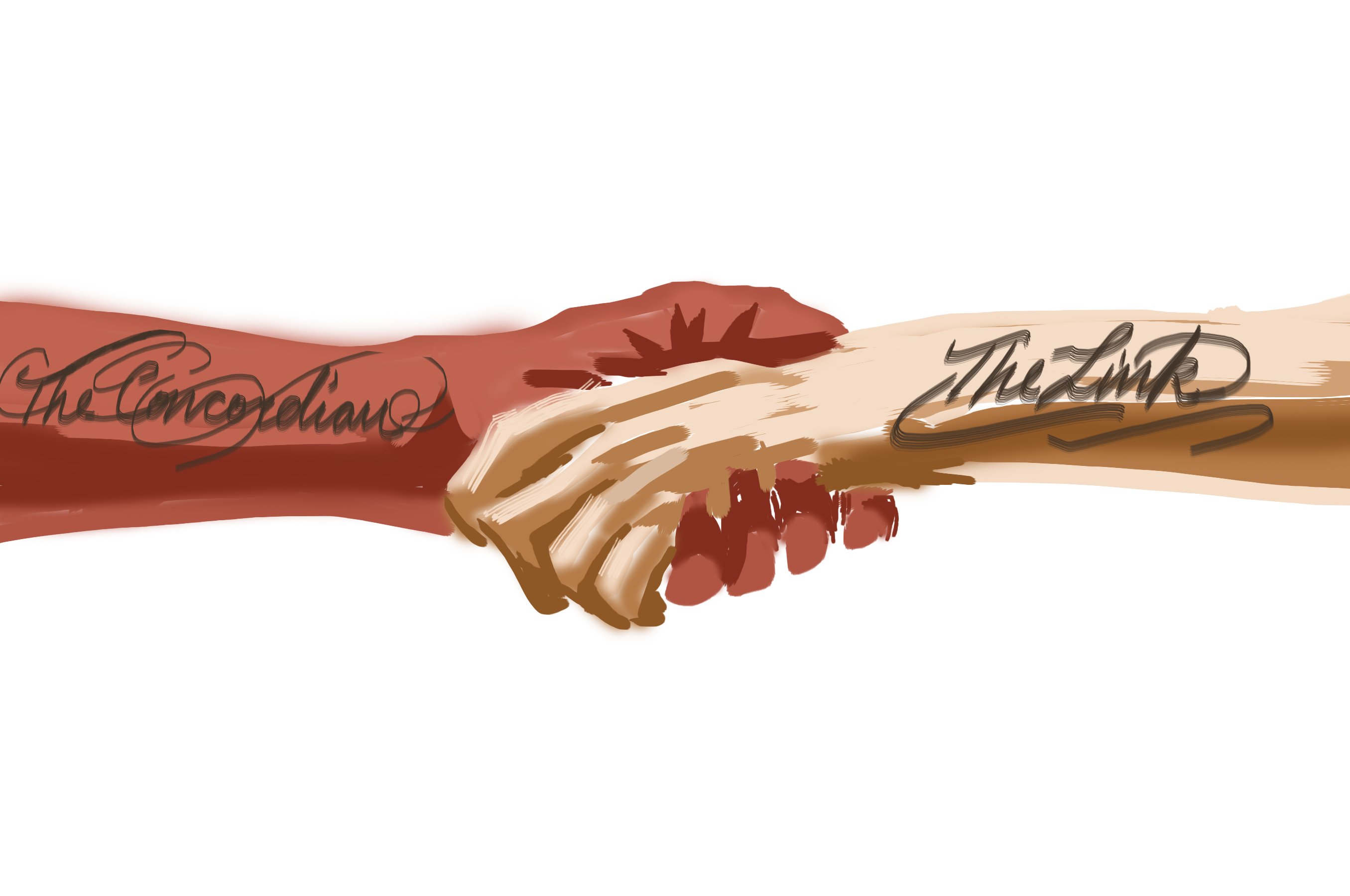The Arts and Science Federation of Associations (ASFA) sent shockwaves throughout the Concordia community early last week when they announced they were implementing a ‘ban’ on The Link newspaper.
The letter posted to the association’s Facebook page said the ASFA executive will “abstain from commenting on, or engaging with” the newspaper. The reasons listed were for unethical practices, such as recording individuals without consent, having a biased agenda, misconstruing information and causing harm to certain individuals’ mental and physical health. There were no specific examples of coverage or names of reporters provided.
ASFA says this ‘ban’ will be in place until The Link formally apologizes or until the end of their mandate on May 31, 2017. Here at The Concordian, we feel as though ASFA should instead be apologizing to The Link.
From one student newspaper to another, The Concordian formally stands with The Link. It can be argued that an attack on one media outlet is an attack on us all. We must fight for the freedom of the university press, and this move by ASFA is purely absurd and quite frankly, autocratic.
The Link’s editor-in-chief Jonathan Caragay-Cook told The Concordian they were not approached by ASFA about the letter they published nor did they reach out about any issues the organization was having with the newspaper’s coverage. Fundamentally, if ASFA had issues with recordings and the way stories were reported on in The Link, the ideal protocol would have been for them to complain to The Link’s editor directly. They chose not to and instead made a hasty decision. Bottom line, ASFA did not take the appropriate action to solve this problem from the get-go.
Just because ASFA has been subject to negative coverage by The Link that they may disagree with, it is not reason enough to instill any kind of ‘ban’. If anything, this makes it appear as though ASFA has something to hide that they don’t want The Link to uncover, or that they can’t handle any criticism. It stinks of lack of transparency.
This letter simply paints the ASFA executive team as irrational and unprofessional—it was extremely unclear and we need solid proof in order to believe any of the claims made. We understand if ASFA has issues with particular reporters or methods of reporting, however, there is a way to communicate that to a media outlet. It’s reminiscent of what’s going on in America with Donald Trump and the media.
We would hope that, if any of our own writers here at The Concordian were causing problems or conducting their interviews in shady ways, we would be contacted directly about it before any sort of action takes place. We would hope to be kept in the loop about a reporter who is not doing their job correctly so we could address the issue first-hand. In this case, The Link was left in the dark.
However, we learned that ASFA voted at their meeting on Thursday that they would meet with The Link to discuss their future working relationship. Despite this good news, this should have been the action taken by ASFA from the beginning. We are disappointed that ASFA has not yet formally apologized to The Link for this hasty letter. Instead, they have apologized only to their membership, for the way they chose to release the statement.
The Concordian believes this ‘ban’ should be immediately rescinded, and we hope the two groups can resolve this problem as soon as possible. As media, we must be able to hold our student politicians and student organizations accountable. Without us, how will students be informed about what may be going on behind closed doors?
